Superstar R&B Artist Official Angello
Allister Amada Spoken Word Contest Winner
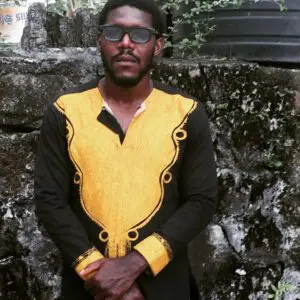

Winner
Lilian Langaigne contest winner
Jenson Mitchell aka Highroof Spirit Lead Spoken Word Piece


Ellington Nathan Purcell aka “Ello”
A must watch Spoken Word


Did You Know
Eric Matthew Gairy (1974 – 1979 GULP) was Grenada’s first Prime Minister. He was born on February 18, 1922 and died August 23rd, 1997. He served his country as Prime Minister from its independence in 1974 until his overthrow in a coup by Maurice Bishop on March 13, 1979. Eric Gairy also served as head of government in pre-independence Grenada in the role as Chief Minister from 1961 to 1962, and as Premier from 1967 to 1974.
His Early Years in Grenada: 1922 – 1941
Eric Matthew Gairy was the son of Douglas and Theresa Gairy, and was born February 18, 1922 in Dunfermline, St. Andrews Parish on the eastern side of the island near Grenville. He attended the LaFillette School and then the St. Andrews Roman Catholic Senior School. He was also an acolyte at St. Andrew’s Roman Catholic Church, next door to the school. He became a primary “student-teacher” in the LaFillette School from January 1939 to September 1941. He moved to Aruba where he worked several years in the oil refinery of the Lago Oil and Transport Company.
Trade Union Leader and “Red Sky”: 1950 – 1951
Eric Gairy returned to Grenada in December 1949 to enter trade unionism and politics. In 1950 he founded the Grenada Manual & Mental Workers Union (GMMWU) and was deeply involved in encouraging the 1951 general strike for better working conditions. This sparked great unrest, many buildings were set ablaze that the disturbances became known as the “red sky”. The British authorities had to call in military reinforcements to help regain control of the situation. Gairy was arrested and taken into custody.
Radical Political Leader: 1951 – 1961
In 1951 Gairy founded the Grenada United Labor Party. He was elected as a representative of the Colony of Grenada’s Legislative Council in 1951, 1954, and 1957. He was banned from political activities and lost his seat between 1957 and 1961.
Chief Minister: 1961 – 1962
Gairy was returned in a by-election in July 1961 and became Chief minister, as his party held a majority in the Legislative Council since winning the 1961 general election. He served as Chief Minister from August 1961 until April 1962 when he was dismissed by the British colonial Governor for the questionable use of state funds.
Leader of the Opposition Party: 1962 – 1967
Gairy’s party lost the 1962 general election and he served as leader of the opposition between 1962 and 1967.
Premier: 1967 – 1974
First administration: 1967-1972
Gairy won the 1967 general election and formed a new administration as Premier of the Associated State of Grenada.
Miss World Controversy
In the 1970 Miss World pageant in London, controversy followed after Grenada beautiful contestant Jennifer Hosten won, and another black contestant from South Africa placed second. Since Gairy was on the judging panel, inevitably there were many accusations that the contest had been rigged. The BBC and newspapers received numerous protests about the result, and accusations of racism were made by all sides. Four of the nine judges had given first-place votes to Miss Sweden, Marjorie Christel Johansson, while Miss Grenada received only two firsts, yet Johansson finished fourth. Some of the audience gathered in the street outside Royal Albert Hall after the contest and chanted “Swe-den, Swe-den”. Four days later, organizing director Julia Morley resigned because of the intense pressure from the newspapers. Years later Johansson was reported as saying that she had been cheated out of the title.
Second Administration: 1972 -1974
Gairy won the 1972 general election and formed a new administration as Premier of the Associated State of Grenada.
Prime Minister: 1974 – 1979
First Administration: 1974 – 1976
Gairy became the first Prime Minister of Grenada when Grenada achieved independence from Great Britain on February 7th, 1974. Gairy’s term in office coincided with civil strife in Grenada. The political environment was highly charged with Gairy’s secret police, the infamous Mongoose Gang, raining terror on all opponents.
Second Administration: 1976 – 1976
Gairy’s party narrowly won the 1976 election but the result was declared fraudulent by international observers due to intimidation of the opposition by Gairy’s secret police.
On 27 November 1978, Eric Gairy led a group including scientists and an astronaut in addressing the United Nations on the subject of UFOs.
US citizens helped to support the overthrow of Eric Gairy with solidarity movements. One such solidarity movement existed in San Antonio, Texas and was headed by African American activist Mario Marcel Salas, who was active in his overthrow on a number of levels. Civil strife took the form of street violence between government supporters, including the Mongoose Gang, and gangs organized by the New Jewel Movement (NJM). In the late 1970s, the NJM began planning to overthrow the government, with party members receiving military training outside of Grenada.
In 1979, a rumor circulated that Gairy would use the Gang to eliminate leaders of the New Jewel Movement while he was out of the country. In response, Bishop overthrew Gairy on March 13th while he was visiting the United States.
On March 13th, 1979, while Gairy was at the UN, the New Jewel Movement led by Maurice Bishop launched an armed revolution and overthrew the government. Bishop suspended the constitution, and the New Jewel Movement ruled the country by decree until 1983. Anti Gairy activity was carried out in the United States in support of the revolution to overthrow Gairy including activists in San Antonio, Texas.
Exile in the United States: 1979 – 1983
Gairy stayed in exile in the United States until 1983, when the United States, backed by some Caribbean allies – notably, Dame Eugenia Charles, Prime Minister of Dominica – invaded to topple a military government which had overthrown and killed Bishop.
Return and Final Days: 1983 – 1997
Gairy then returned to Grenada and campaigned in the elections of 1984, claiming to be a changed man. However, his party lost the elections, winning 36% of the popular vote but only a single seat in the House of Representatives. Attempts by Gairy and his party to return to power in 1990 and 1995 were also unsuccessful. He died in Grand Anse, Grenada.
Maurice Rupert Bishop (1979 – 1983 NJM) was born on May 29th, 1944 and died October 19th, 1983. He was a Grenadian revolutionary and the leader of New Jewel Movement, a Marxist-Leninist party which sought to prioritize socio-economic development, education, and black liberation. His government came to power during the March 13th, 1979 Coup that removed Eric Gairy from office. Bishop headed the People’s Revolutionary Government of Grenada from 1979 to 1983, when he was dismissed from his post and shot during a coup by Bernard Coard, leading to upheaval.
Biography
Maurice Bishop was born on 29 May 1944 on the island of Aruba, then a colony of the Netherlands as part of the Netherlands Antilles. His parents, Rupert and Element Bishop, came from the northeast of Grenada, where his father earned only 5 British pence per day. At the end of 1930, to improve his financial position, he moved to work in the oil refinery on the island of Aruba with his wife Element.
Childhood and adolescent
Until the age of six, Maurice was raised in Aruba with two older sisters Anne and Moran. In 1950 his father took the family back to Grenada and opened a small retail shop in St. George’s. Maurice was sent to study at the Wesleyan elementary school, but after a year transferred to the Roman Catholic St George’s primary and high school. At the age of nine Maurice was teased because of his height which made him look much older. As an only son, his father pushed his education and expected much of him. He expected perfect grades from him, not 95 but 100%, and when the family purchased a car his mother expected him to walk to school just like his peers.
For his secondary education, Bishop received one of the four government scholarships for study at the Roman Catholic Presentation Brothers’ College. He was elected president of the Student Council, of the Discussion Club, and of the History Study Group, along with editing the newspaper Student Voice and participating in sports. He later recalled: “Here I had much interest in politics, history and sociology.” He also established contacts with students from the Anglican Grenada Boys’ Secondary School, his own school’s competitors. He was an ardent supporter of the West Indies Federation established in 1958 and the ideas of Caribbean nationalism. He also recalled the great interest the 1959 Cuban Revolution aroused in him. Bishop recalled: “In fact, for us it did not matter what we heard on the radio or read in the colonial press. For us, it comes down to the courage and legendary heroism of Fidel Castro, Che Guevara. …Nothing could overshadow this aspect of the Cuban Revolution.”
In those same years Bishop and his colleagues became interested in reading the works of Julius Nyerere and Frantz Fanon. In 1962 Bishop graduated with a gold medal for his outstanding ability.
Shortly before graduation, in early 1962, Bishop and youth leader from Grenada Boys’ Secondary School Bernard Coard, created the Grenada Assembly of Youth Fighting for Truth, designed to bring the island youth to political life in a debate over pressing issues. Members gathered on Friday in St. George’s main square and arranged open political debates among the people. Both friends and enemies celebrated his charisma and good oratory skills, including his skillful use of humor in his speeches.
Education in England
The group’s activities ended nine months later when Bishop and the other Assembly leaders left to study at universities in Europe and the United States. In December 1963 the 19-year-old Maurice Bishop arrived in London to study law at the University of London, and Coard travelled to the US to study economics at Brandeis University. In London, Bishop received his Bachelor of Law at Gray’s Inn in 1966. He often worked in London as a postman or vegetable packer. In 1963 to 1966, Bishop was president of the Students Association of Holborn College and in 1967 headed the association of students of the Royal College. While studying Grenadian history, Bishop focused on anti-British speeches and Julien Fédon, the head of the 1795 uprising. In 1964 he participated the UK’s West Indian Standing Conference (WISC) and Campaign Against Racial Discrimination (CARD). He travelled from the UK to socialist Czechoslovakia and the German Democratic Republic. During this period, he studied the works of Marx, Lenin, Stalin, and Mao Zedong. Bishop was particularly impressed by Julius Nyerere’s Ujamaa: Essays on Socialism (published by Oxford University Press in 1968) and the Arusha Declaration of 1967.
From 1967 to 1969 Bishop worked on his thesis “Constitutional Development of Grenada”, but left because of disagreements with the supervisor in assessing the 1951 disturbances. In 1969 he received a law degree and became one of the founders of the Legal Aid Office of the West Indies community in London’s Notting Hill Gate. This was volunteer work, and his main source of income came from work as an auditor of additional taxes on the British Civil Service. During this period, he corresponded with friends and developed a two-year plan of activities upon his return to Grenada. The plan called for temporary withdrawal from participation in political activities and his work as a lawyer to co-create an organization capable of taking power on the island.
Returning to Grenada in December 1970, Bishop gave legal defense to striking nurses at St. George’s General Hospital, who hoped to improve the living conditions of their patients. He was arrested along with 30 other protestors. All were acquitted after a seven-month trial. In 1972 Bishop helped organize a conference in Martinique that discussed and strategized actions for liberation movements. The philosophy of Julius Nyerere and Tanzanian socialism were guiding elements for the Movement for Assemblies of the People (MAP) which Bishop helped organize after the elections of 1972. Bishop and co-founders Kenrick Radix and Jacqueline Creft were interested in steering MAP toward construction of popular institutions centered in villages, to facilitate broad participation in the country’s affairs.
In January 1973 MAP merged with the Joint Endeavor for Welfare, Education, and Liberation (JEWEL) to form the New Jewel Movement (NJM). Bishop shared the leadership as Joint Coordinating Secretary with Unison Whiteman.
Grenada Bloody Sunday
On November 18th, 1973, Bishop and other leaders of the New Jewel Movement were driving in two cars from St George’s to Grenville, where they were to meet with businessmen of the city. Security forces under Assistant Chief Constable Aynesent Belmar overtook Bishop’s motorcade. Nine people were captured, arrested, and beaten by the government. In prison they shaved their beards, revealing Bishop’s broken jaw. These events became known in Grenada as “Bloody Sunday.”
Grenada Bloody Monday
Bishop joined a mass demonstration against Gairy on 21 January 1974. As his group returned to their hotel, they were pelted with stones and bottles by Gairy’s supporters, and the security forces used tear gas on the crowd. Rupert Bishop, Maurice’s father was leading women and children away from the danger and was himself shot and killed at the door of the hotel. This became known in Grenada as “Bloody Monday.” After this event, Bishop noted “we realized that we were unable to lead the working class,” since the party had no influence in city workers’ unions or among the rural folk loyal to Gairy. With his colleagues, he developed a new strategy, shifting focus from propaganda and mobilization for anti-government demonstrations toward organization of party groups and cells.
Strange conspiracy Independence Day
On February 6th, 1974, the day before the proclamation of the independent state of Grenada, Bishop was arrested on charges of plotting an armed anti-government conspiracy and taken to the Fort George prison. Police said that while searching his house they found weapons, ammunition, equipment, and uniforms, along with a plan to assassinate Eric Gairy in a night club, and a scheme for guerrilla camps. The day after Independence Day, on February 8th, 1974, Bishop was released on bail and soon after went to the United States.On March 29th, 1974 he participated in a meeting of the Regional Steering Committee of the Pan-African Congress in Guyana. He also continued his law practice, in October 1974 defending Desmond “Ras Kabinda” Trotter and Roy Mason who were accused of murdering an American tourist.
In October 1975 he spoke at a seminar on “Fascism: A Caribbean Reality?”, organized by the Oilfields Workers’ Trade Union in Trinidad, and represented the Nutmeg Board as solicitor in High Court. In November 1975 the NJM Political Bureau formed a Grenada-Cuba Friendship Association, with Bishop as one of the initial leaders. In 1976, he was elected to represent St. George’s South-East in Parliament. For several years he held the position of leader of the opposition in the Grenadian House of Representatives, opposing the government of Prime Minister Eric Gairy and his Grenada United Labor Party (GULP), which maintained power by terrorism and fraudulent elections. In May 1977 Bishop made his first visit to Cuba, with Unison Whiteman, as leaders of the NJM and guests of the Cuban Institute of Friendship with People (ICAP).
Our Revolution
On March 13th,1979 Bishop’s party staged a revolution and deposed Gairy, who was out of the country addressing the United Nations. Bishop became Prime Minister of Grenada and suspended the constitution.
Maurice Bishop has been styled a “brilliant communicator” who had the ability to reach the masses with his orator skills. He also showed empathy for the masses which was the driving force of the Revolution that overthrew the corrupt and pro-imperialist administration of Eric Gairy.
Bishop immediately established a relationship with Cuba after he took power. He initiated several projects, most significantly, the building of a new international airport on the island’s southern tip (renamed in his memory in May 2009). Financing and labor for the construction of the airport came from Cuba, although most of the airport’s infrastructure was designed by European and North American consultants. American President Ronald Reagan accused Grenada of intending to use the new airport’s long “airstrip” as a waypoint for Soviet military aircraft. Fearful of the spread of socialism, Reagan who had spurned Bishop’s overtures for friendship planned an invasion which became a constant threat to the stability of the Revolution.
Among Bishop’s core principles were workers’ rights, women’s rights, and the struggle against racism and apartheid. Under Bishop’s leadership, the National Women’s Organization was formed which participated in policy decisions along with other social groups. Women were given equal pay and paid maternity leave, and sex discrimination was made illegal. Organizations for education (Center for Popular Education), health care, and youth affairs (National Youth Organization) were also established. Despite its achievements, Bishop’s government would not hold elections and stifled the free press and the opposition – perhaps due to fear of outside interference.
The People’s Revolutionary Army (PRA) was also formed during Bishop’s administration. Critics claimed that the army was a waste of resources, and there were complaints that the PRA was used as a tool to commit human rights abuses, like torture and detention of political dissidents without trial. The establishment of voluntary mass organizations of women, farmers, youth, workers, and militia were presumed to make the holding of elections unnecessary. Moreover, it was believed that elections could be manipulated by the input of large sums of money from foreign interests.
Bishop has been quoted at length on the dynamics of democracy:
“There are those … who believe that you cannot have a democracy unless there is a situation where every five years … people are allowed to put an “X” next to some candidate’s name, and … they return to being non-people without the right to say anything to their government, without any right to be involved in running their country. …Elections could be important, but for us the question is one of timing. …We would much rather see elections come when the economy is more stable, when the Revolution is more consolidated. When more people have in fact had benefits brought to them. When more people are literate …The right of freedom of expression can really only be relevant if people are not too hungry, or too tired to be able to express themselves. It can only be relevant if appropriate grassroots mechanisms rooted in the people exist, through which the people can effectively participate. …We talk about the human rights that the majority has never been able to enjoy, … a job, to decent housing, to a good meal. …These human rights have been the human rights for a small minority over the years in the Caribbean and the time has come for the majority of the people to begin to receive those human rights for the first time.”
While Bishop introduced free public health, illiteracy dropped from 35% to 5% and unemployment went from 50% to 14%, his weak point was tourism. He unpacked the old project of an international airport and asked his friend Fidel Castro for help.
Arrest and Execution
When Bernard Coard arrested Bishop, protesters numbering 30,000 on an island of 100,000 gathered, and even the guards joined the protest, resulting in the release of Bishop. But Bishop, knowing the determination of the Coard faction, confided in a journalist: “I am a dead man.”
In 1983, disputes among the party leadership occurred. A military junta group within the party tried to make Bishop either step down or agree to a power-sharing agreement with Deputy Prime Minister Bernard Coard. Bishop rejected these proposals and was eventually deposed and placed under house arrest during the first week of October 1983 by Coard. Large public demonstrations throughout the island demanded Bishop’s freedom and restoration to power. During one demonstration, the crowd freed Bishop from house arrest. First in a truck, then by car, Bishop made his way to the army headquarters at Fort Rupert (known today as Fort George). After he arrived, a military force was dispatched from Fort Frederick to Fort Rupert. Bishop and seven others, including cabinet ministers, were captured. Then a four-man People’s Revolutionary Army firing squad executed Bishop, three members of his Cabinet and four others by machine-gunning them down. After he was dead, a gunman slit his throat and cut off his finger to steal his ring. The bodies were then transported to a military camp and partially burned in a pit. The location of their remains is still unknown.
Partly as a result of Bishop’s murder, the Organization of Eastern Caribbean States (OECS) and the nations of Barbados and Jamaica appealed to the United States for assistance, as did Grenada’s governor-general, Sir Paul Scoon, then the U.S. President, Ronald Reagan launched his invasion.
Family
Maurice Bishop married nurse Angela Redhead in 1966. They had two children, Nadia born 1969 and John born 1971. Angela emigrated to Toronto, Ontario, Canada, with both children in 1981, while Bishop was still prime minister. He also fathered a son, Vladimir Lenin born (1978–94), with his longtime partner Jacqueline Creft (1947–83), who was Grenada’s Minister of Education. Creft was killed alongside Bishop at the confrontation at Fort Rupert known as Fort George today on October 19th, 1983. After his parents’ deaths, Vladimir joined his half siblings in Canada, but was stabbed to death in a Toronto nightclub at the age of 16.
Legacy
On May 29th, 2009, Grenada’s international airport formerly Point Salines International Airport was renamed Maurice Bishop International Airport. Speaking at the ceremony, St. Vincent and the Grenadines Prime Minister Ralph Gonsalves said: “This belated honor to an outstanding Caribbean son will bring closure to a chapter of denial in Grenada’s history.”
Sir Nicholas Alexander Brathwaite OBE (1983 – 1984 NDC) was born July 8th, 1925 – October 28th, 2016. He was the prime minister of Grenada from 1983 to 1984 and from 1990 to 1995.
Nicholas Brathwaite was born in Carriacou, Grenada. Following the 1983 invasion of Grenada, Brathwaite, a member of the National Democratic Congress (NDC), was appointed by Governor-General, Sir Paul Scoon to reestablish the Grenadian government. Brathwaite became prime minister and chairman of the advisory council in December 1983, when American troops withdrew. He led Grenada’s return to democracy, and served as prime minister for a year, until his party lost the December 1984 elections. The NDC won the 1990 elections, and he served as prime minister again from March 1990 to February 1995. He also served as foreign minister during some of that time. He resigned shortly before the 1995 elections, which the NDC lost. He was appointed an OBE in 1975 and was knighted in 1995. He died on October 28th, 2016 at the age of 91.
Herbert Augustus Blaize (1984 – 1989 NNP) was born February 26th, 1918 – December 19th, 1989. He was a Grenadian politician and leader of the Grenada National Party. When Grenada was still a British Crown Colony he served as the first Chief Minister from 1960 to 1961, and again from 1962 to 1967. He became the first Premier of the autonomous Associated State of Grenada briefly in 1967. In the first elections following the 1983 coups and the American-led invasion of Grenada, he served as Prime Minister from 1984 until his death in 1989.
Early Years
Blaize was born in the island of Carriacou, which along with the island of Petite Martinique is a part of Grenada. He moved to Aruba where he worked many years in the oil refinery of the Lago Oil and Transport Company.
Grenada National Party
In 1953 he formed the Grenada National Party as a rival party to the Grenada United labor Party of Eric Gairy, who would be Blaize’s main political rival for the next 25 years. Blaize entered the legislature in 1957 and became Minister of Trade and Production.
Chief Minister and Premier
He was appointed as Chief Minister in 1960, he lost power to Gairy in 1961, and was reappointed in 1962 after Gairy was dismissed. In 1967 Grenada became an associated state within the British Empire, gaining more internal self-government. Soon afterwards, Blaize lost power and Gairy began a long tenure as Prime Minister.
In Opposition
In 1976 Blaize’s center-right National Party joined forces with the left-wing New Jewel Movement led by Maurice Bishop for the elections that year, which Gairy and the GULP won. The alliance between Blaize and Bishop ended by 1979 when Bishop seized power. Blaize retired from politics and moved back to Carriacou, until after the intervention by the United States in 1983.
Prime Minister
During the election campaign of 1984, Blaize merged his parties with several other center-right parties to form the New National Party, which took 14 of 15 seats in the election. He was sworn in on December 4th, 1984 and his Cabinet was announced 11 days later.
In addition to being Prime Minister, Blaize became Minister of Home Affairs, Security, Information, Finance, Trade, Planning, Industrial Development and Carriacou and Petite Martinique Affairs.
Blaize’s government advocated a strong economic and military alliance for Grenada with the United States, and other overseas investment. Blaize was often criticized for being authoritarian.
Death
Herbert Augustus Blaize died on December 1989 at the age of 71 in St. George’s, Grenada, following a long battle with prostate cancer. Two days before his death, Blaize had been elected the first party leader of the newly formed National Party.
Family
Hebert Blaize was survived by his wife, Dame Venetia Blaize, DBE (née Venetia Ursula Davidson); three daughters, Norma Blaize (a former Consul-General of Grenada in New York), Carol Jerome and Marion Fleary. Three sons, Samuel Blaize, Marvin Blaize and Christopher Blaize. He was also survived by his sister, Muriel Noel.
Ben Joseph Jones (1989 – 1990 NNP) born August 5th, 1924 – 10 February 2005. He was a Grenadian politician. He was a lawyer before being elected to Parliament as a member of the New National Party in 1984. In 1984 he began serving as foreign minister in the government of his party’s leader, Herbert Blaize. When Blaize died in December 1989, Jones became prime minister of Grenada. He served until March 1990, when his party lost elections. He also gave up his position as foreign minister at that time but was reappointed later that year. Though his party was out of power, Jones continued serving as foreign minister until 1991.
Biography
Jones was born in Carriere, Saint Andrew Parish, Grenada, and was educated at the Belair Presbyterian Primary School until 1943. During World War II he enlisted in the Windward Islands Battalion of the South Caribbean Force.
He subsequently worked in Aruba in the oil refineries for nine years, then in 1953 migrated to the United Kingdom, determined to study law. He eventually entered Gray’s Inn and at the same time enrolled as an external student at the University of London. He was called to the Bar on 6 February 1962.
He returned to Grenada in 1964 to start a private law practice but the following year moved into government service as a magistrate. In 1966, he was appointed Senior Assistant Secretary in the Ministry of External Affairs and was appointed Opposition Senator from 1967 to 1979.
In 1984, he was elected to the House of Representatives, winning the St. Andrew’s South West constituency under the New National Party (NNP). He served in Legal Affairs as Attorney General, and as Minister of External Affairs, Agriculture and Tourism.
He was deputy Prime Minister from 1984 to 1989, and, following the death of Herbert Blaize, was a short-term Prime Minister from December 1989 until March 1990. He succeeded Blaize as the leader of the newly formed National Party. He resumed his private practice in 1991.
Popularly known as “Uncle Ben”, Jones died in his sleep at his home in Carriere, St. Andrew’s, at the age of 80 and was given a state funeral.
Sir Nicholas Alexander Brathwaite OBE (1991 – 1995 NDC) was born July 8th, 1925 – October 28th, 2016. He was the prime minister of Grenada from 1983 to 1984 and from 1990 to 1995.
Brathwaite was born in Carriacou, Grenada. Following the 1983 invasion of Grenada, Brathwaite, a member of the National Democratic Congress (NDC), was appointed by Governor-General Sir Paul Scoon to reestablish the Grenadian government. Brathwaite became prime minister and chairman of the advisory council in December 1983, when American troops withdrew. He led Grenada’s return to democracy, and served as prime minister for a year, until his party lost the December 1984 elections. The NDC won the 1990 elections, and he served as prime minister again from March 1990 to February 1995. He also served as foreign minister during some of that time. He resigned shortly before the 1995 elections, which the NDC lost. He was appointed an OBE in 1975 and was knighted in 1995. He died on 28 October 2016 at the age of 91.
George Ignatius Brizan, CMG, CBE (1995 – 1995 NDC) was born October 31st,1942 –February 18th, 2012. He was a Grenadian politician who served as Prime Minister of Grenada for four months in 1995. He moved to the top post in February, upon the resignation of Nicholas Brathwaite, and remained in office until Keith Mitchell was inaugurated on 22 June.
Life and Career
Following studies in Economics, History and Education, George Brizan began public service as a teacher at the Grenada Boys’ Secondary School (GBSS) and later as vice-principal of the Institute for Further Education (IFE), one of the predecessor institutions to the T.A. Marryshow Community College (“TAMCC”). On several occasions, Brizan was called upon by governments to serve in various capacities particularly in the areas of trade and development. At various times in his long and illustrious career, Brizan served as a Trade Union leader, Economics, History and Education Lecturer and even a Sports Announcer/Commentator on the island’s annual inter-collegiate track and field competition, popularly known as “Intercol.” Brizan had the distinction of working for or consulting with every Grenada government since the late 1960s and when he became a consultant in the Ministry of Finance in the Keith Mitchell administration, he became at that time, the only former Prime Minister in the Caribbean to work for or serve in a successor government. A prolific author, Brizan authored one of the seminal works on Grenada’s history, Grenada: Island of Conflict. Brizan was instrumental in guiding and serving as a role model for hundreds of Grenadian students over the years. Indeed, it was not uncommon for students to declare a desire to be a “Brizan” (i.e. Economist/Historian) as their career goal. That to this day Economics remains one of the most popular courses of study for Grenadian students is a testament to Brizan’s influence.
Brizan formed and led the National Democratic Party, which later merged with the Grenada National Party led by Herbert Blaize and the Grenada Democratic Movement led by Dr. Francis Alexis in August 1984 to create The New National Party (NNP). In April 1987, Brizan went into opposition and founded the National Democratic Congress (NDC). He was subsequently succeeded as NDC leader by Nicholas Brathwaite. Braithwaite became Prime Minister following the NDC victory in the 1990 election, and Brizan served in Braithwaite’s Cabinet as Minister of Finance before being moved to the post of Minister of Agriculture on 27 April 1992. In both positions, he additionally held the portfolios of Trade, Industry, Production and Energy.
After Braithwaite resigned from the party leadership in July 1994, Brizan was elected as NDC leader at a party convention on September 4th, 1994. He then became Prime Minister upon Brathwaite’s resignation from that position on February 1st, 1995. In addition to serving as Prime Minister, he took responsibility for the portfolios of External and National Security, Home Affairs, Agriculture, and Personnel and Management.
The NDC was beaten in the June 1995 general election, and Brizan resigned from the party leadership and active, front-line politics after the NDC suffered a more severe defeat in the January 1999 general election, failing to win any seats. Brizan remained a highly sought-after Economic and Politics expert although he considered himself semi-retired due to pressing health issues.
He was appointed Commander of the Order of the British Empire (CBE) in the 2009 New Year Honors.
Brizan died at the General Hospital in St. George’s, Grenada, on February 18th, 2012, at aged 69. He was given a state funeral and rests in St. George’s Center Cemetery.
Keith Claudius Mitchell (1995 – 2008 NNP) was born November 12th, 1946. He is a Grenadian politician who has been Prime Minister of Grenada since 2013. He previously served as Prime Minister from 1995 to 2008. He is the longest-serving Prime Minister Grenada has ever had, holding the office for more than twenty years. He is currently leader of the New National Party (NNP) and was Leader of the Opposition from 2008 to 2013.
Education and Personal Life
Keith Claudius Mitchell was born in the community of Brizan, Saint George’s. Mitchell graduated from the University of the West Indies with a Bachelor of Science degree in mathematics and chemistry in 1971. He gained a master’s degree from Howard University in 1975 and a doctorate in mathematics and statistics from American University in 1979. He then worked as a statistician at Applied Management Sciences, providing statistical support to the U.S. Energy Information Administration. Mitchell gave up his professional activities to return home to Grenada after the U.S. invasion in 1984.
Cricket Career
Mitchell was also a cricketer, a spin bowler, who captained the Grenada team in 1973. He has since been a prominent cricket administrator in the West Indies alongside his political career.
Political Career
In the December 1984 general election, he was elected to a seat in the House of Representatives from St. George North West constituency, and he has held the seat in each subsequent election. Mitchell was elected as leader of the NNP in January 1989, defeating Prime Minister Herbert Blaize. Blaize then dismissed Mitchell from his position as Minister of Works and Communications on July 21st, 1989.
After the NNP was victorious in the general election held on June 20th, 1995, winning eight out of 15 seats in the House of Representatives, Mitchell took office as Prime Minister, along with his Cabinet, on June 22nd. Under Mitchell’s leadership, the party won all 15 seats in the early election held in January 1999, and the NNP narrowly won a third term in power in the November 2003 election, reduced to a one-seat parliamentary majority.
The New National Party was defeated in the general election held on July 8th, 2008 by the National Democratic Congress (NDC), winning only four seats against 11 for the NDC. Mitchell himself was re-elected to his seat from St. George North West. NDC leader Tillman Thomas succeeded Mitchell as Prime Minister on July 9th. Mitchell said that the people voted for change and congratulated Thomas. Following the election, he continued as NNP leader and was sworn in as Leader of the Opposition on July 16th, 2008.
In the February 2013 general election, the NNP won all 15 parliamentary seats. After this resounding victory, Mitchell was sworn in as Prime Minister on February 20th, 2013. Looking ahead to the next election, Mitchell predicted that his party could win all 15 seats in parliament for a third time. Mitchell and his New National Party created history by retaining all 15 seats in the Grenada General Election of March 13th, 2018. It is the first time any political party regionally or otherwise has achieved such a feat.
In 2019, an Al Jazeera English report discussed allegations that Mitchell sold diplomatic roles to foreigners in exchange for government kickbacks.
Tillman Joseph Thomas (2008 – 2013 – NDC) was born June 13, 1947. He is a Grenadian politician who served as Prime Minister of Grenada from 2008 to 2013. He was the leader of the National Democratic Congress (NDC) from 2000 to 2014.
BIOGRAPHY
Thomas was born in Hermitage, St. Patrick, Grenada. He was among those imprisoned under Prime Minister Maurice Bishop for two years.
Thomas is a graduate of New York’s Fordham University, where he earned a bachelor’s degree in Economics, as well as the University of the West Indies, Cave Hill Campus and the Hugh Wooding Law School where he completed an LL.B. and a Certificate of Legal Education respectively. His political career began in 1978, when he became involved in the Human Rights and Legal Aid Program with the leader of the New Jewel Movement, Maurice Bishop.
In December 1984, Thomas was elected to the House of Representatives from St. Patrick East constituency, and from 1984 to 1990, he was a Junior Minister in the Ministry of Legal Affairs. In 1987, he was a founding member of the NDC, and from 1987 to 1990, he was the party’s Assistant General Secretary. Thomas was defeated in St. Patrick East in the 1990 election, but he was nevertheless appointed as a Junior Minister in the Ministry of labor. Subsequently, he was appointed as Minister in the Ministries of Works and Tourism.
Following the NDC’s defeat in the 1999 general election, in which it failed to win any seats, Thomas was elected as the party leader in October 2000. He won a House of Representatives seat in the November 2003 general election, along with six other members from his party. The NDC fell one seat short of a majority in the 15-seat House of Representatives. However, the governing New National Party (NNP) won another term. Thomas became Leader of the Opposition in early December 2003.
After spending 13 years in opposition, the NDC won the general election held on July 8, 2008, taking 11 out of 15 seats and defeating the NNP. Thomas himself was elected from St. Patrick East constituency. On July 9th, Thomas was sworn in as Prime Minister at the Grenada Trade Center in Grand Anse, St. George’s by Governor-General Daniel Williams. Speaking on this occasion, he promised “openness and transparency” of government as well as ” [the practice of] the politics of inclusion”.
Thomas’s cabinet, composed of 17 members and was sworn in at the National Stadium on July 13, 2008. In addition to being Prime Minister, Thomas took the portfolios of Foreign Affairs, Legal Affairs, National Security, Information, and Public Administration. Two members of non-governmental organizations who were not affiliated with the NDC were included in the cabinet: Franka Bernadine as Minister of Education and Human Resources, and Jimmy Bristol as Attorney-General.
After nearly five years in power, the NDC suffered a crushing defeat in the February 2013 general election, losing all of its seats, including the seat held by Thomas. The opposition NNP won all 15 seats, and Keith Mitchell returned to the office as Prime Minister. In the wake of the defeat, Thomas said at an interview that he was willing to stand aside as the party leader: “Once somebody comes forward, I am prepared to let that person take over the responsibility of leadership of the party”.
Thomas was succeeded as the NDC’s political leader by Nazim Burke, former deputy political leader and Minister of Finance, in early 2014.
Keith Claudius Mitchell (2013 – Present NNP) became Prime Minister once again. He is now the longest-serving Prime Minister Grenada has ever had, holding the office for more than twenty years. He is currently the leader of the New National Party (NNP).
GRENADA PRIME MINISTERS
2 Comments
Upcoming Posts
Dave Chappelle Grenadian Roots
Shervone Neckles
Grand Etang Lake
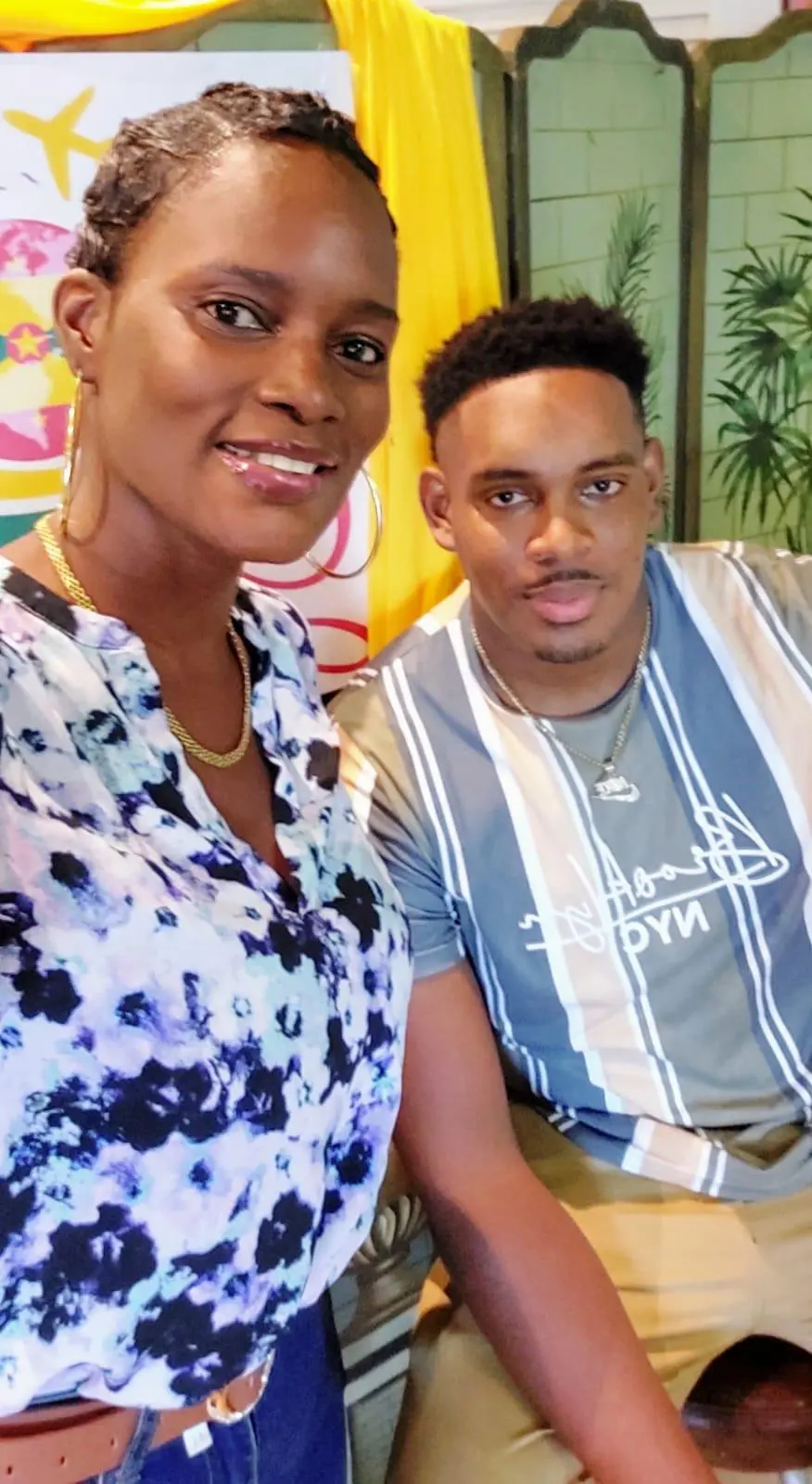



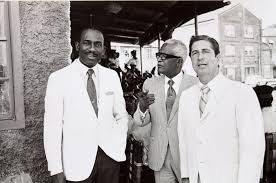

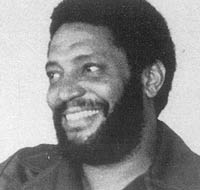
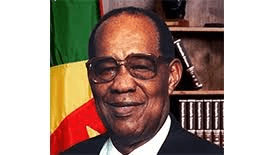
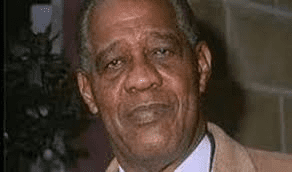

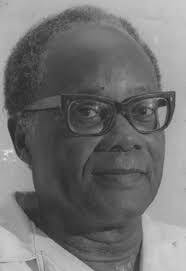
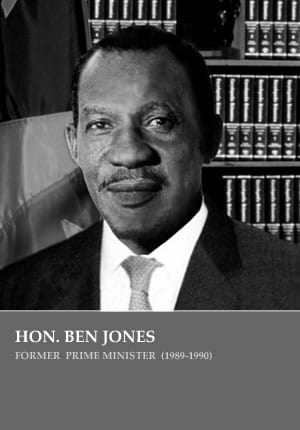
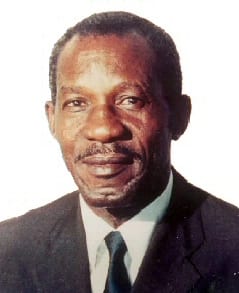


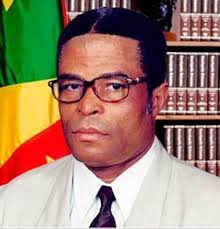
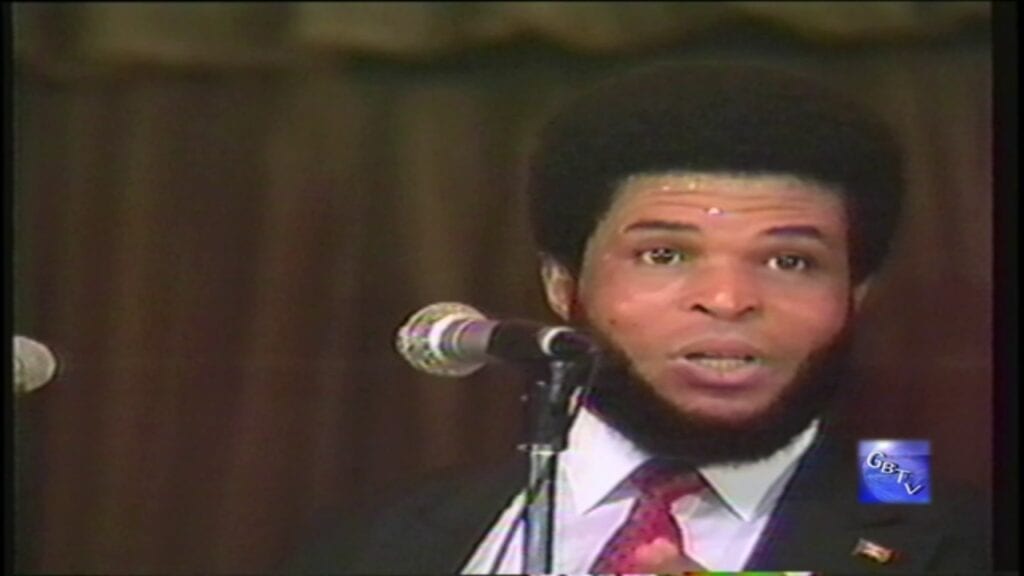
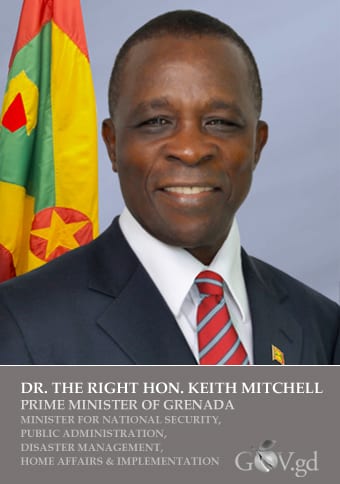


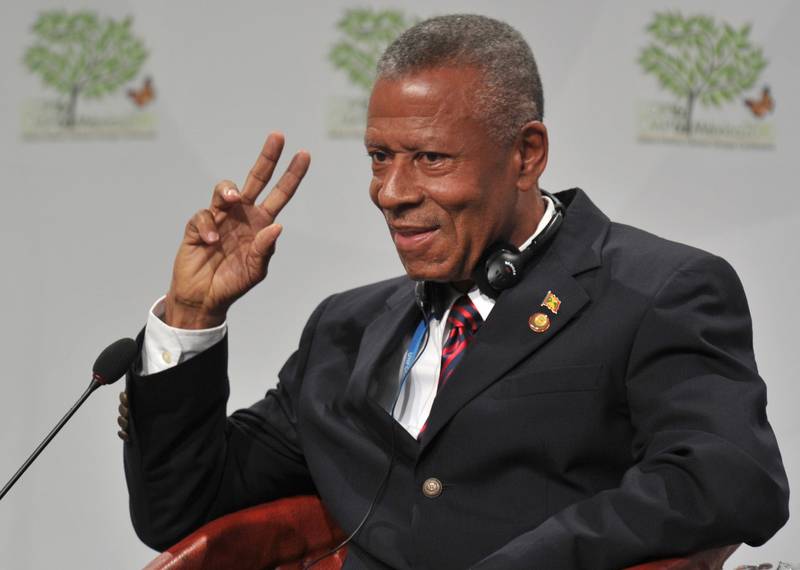

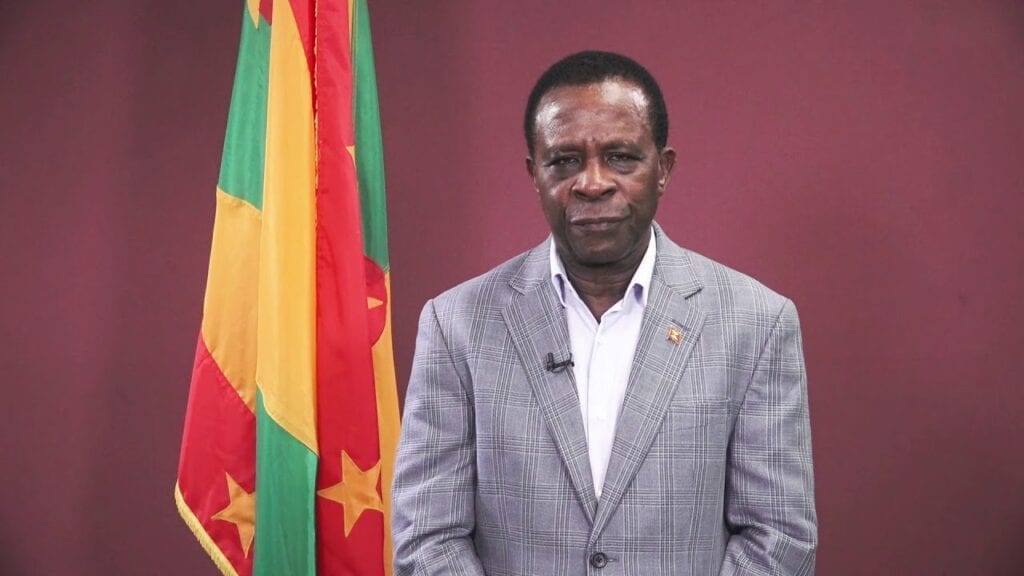
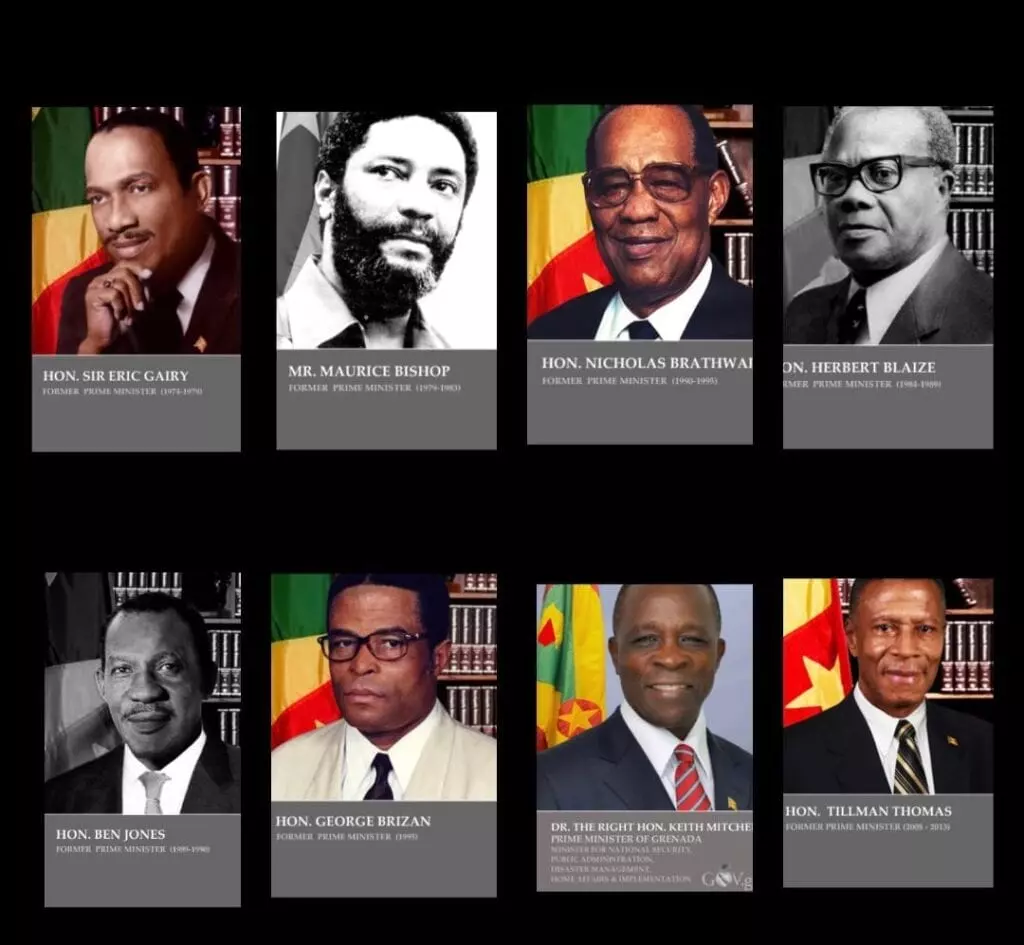
… [Trackback]
[…] Info to that Topic: iamgrenada.com/grenada-prime-ministers/ […]
… [Trackback]
[…] Here you will find 48825 more Info to that Topic: iamgrenada.com/grenada-prime-ministers/ […]